- Your cart is empty
- Continue Shopping
Business And Businessmen pt.2
BUSINESS AND BUSINESSMEN
Pt. II
Last week I discussed a few common oversights or
undersights many of us have toward Black people in retail
sales. This week I would like to discuss and cite a specific
example on “how” and “why” some of these psuedo-myths
and attitudes exist against black businessmen.
INSTITUTIONALIZED RACISM AND
THE BLACK BUSINESSMAN
I will use the “retail record” business as an illustration to
show the relationship between the Black retailer and the white
wholesaler. Although this model may vary depending on the
type of business a person is in, it nevertheless can be a general
working model that shows how the majority of distrust and
disunity comes about among Black people.
The white power structure causes this disunity, and
perpetuates this division through an institutionalized system of
racism; and Black people, who should know white America
better than white America knows herself, shouldn’t accept this
second class thinking about themselves, without profound
question.’
HOW THE SYSTEM WORKS
White America does not like Black people to compete with
them, and will do everything in their power to keep a Black
businessman dependent upon them for survival. Too many
black people progressing in retail business means too much
“Black Power”, and too much “Black Power” means a “white
panic”.
Why do Black record dealers – in general – have to charge
more money than a white retailer for a given record? A simple
anser would be that, he pays more for his records; but, how
many Black people can or want to arrive at such a basic
conclusion. We would rather take the slave conditioning route,
and say, “Every time a Black man gets in business he cheats his
brothers”. To help perpetuate this image of Black people
always fighting, and talking about one another the white
wholesaler performs a number of business programs that are
geared to keeping a Black retailer powerless.
After talking with a Black record retailer in the community
about what really goes on behind the scenes, I deceded to go
with him one morning to see for myself what black record
retailers actually encounter in their daily work.
For example: When a Black record retailer in Pasadena goes
to Los Angeles to buy his records, he will immediately become
educated to the reality of retail business that he didn’t learn in
school. The first reality that keeps him non-competitive –
with reference to the white power structure – is the fact that,
white record dealers can buy their records on a consignment
basis, whereas, Black record dealers cannot. The process
works like this: A white retailer can go into a white whole-
salers store and order 300 or 400 records on a consignment
basis; which means, whatever records he doesn’t sell he can
bring back and the wholesaler in turn, will refund his money.
Thus, through this “reality” of business transaction, we find
that, white America’s progress is due to a “social” or “cultural
affinity,” rather than, a fragmented economic disunity
which Black people so ably demonstrate. The Black retailer
therefore, because Black businessmen are not unified to fight
off this oppression, will in many cases find themselves
bewildered and frustrated “victims” of the system. In retro-
spect, a Black record retailer finds, that he cannot buy his
records on consignment; he must keep every record he buys,
whether he sells it or not. This, as a consequence, forces him
to buy only the records he feels people will buy; and at the
same time, acts to limit the variety of records he has in stock.
NEXT WEEK
I will continue this line of thought next week, and also
discuss the relationship of the Black businessman and the
police departments.



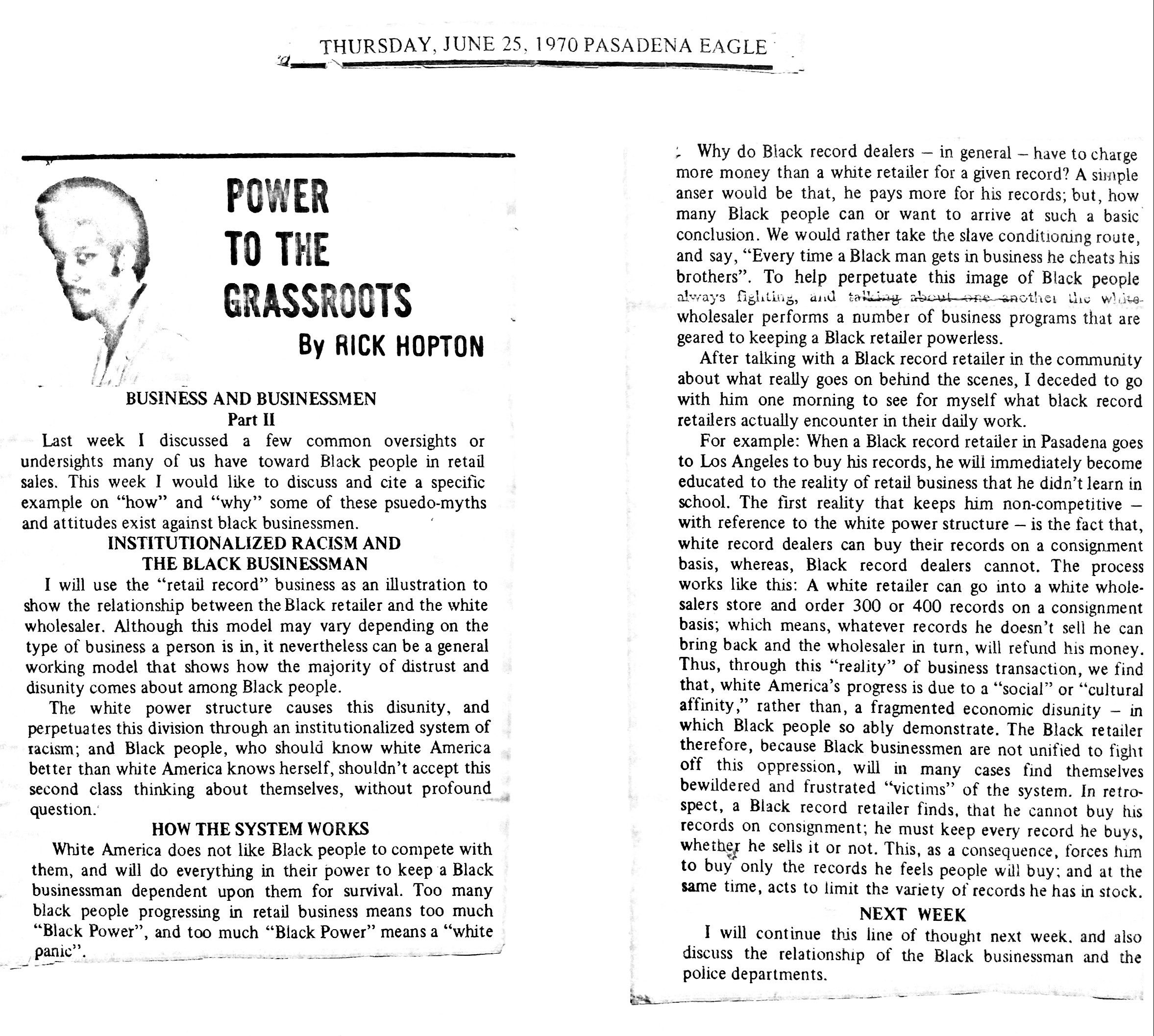
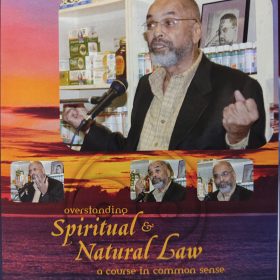
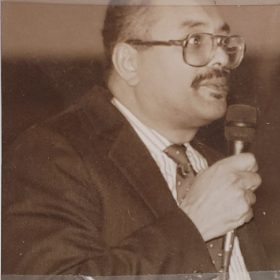


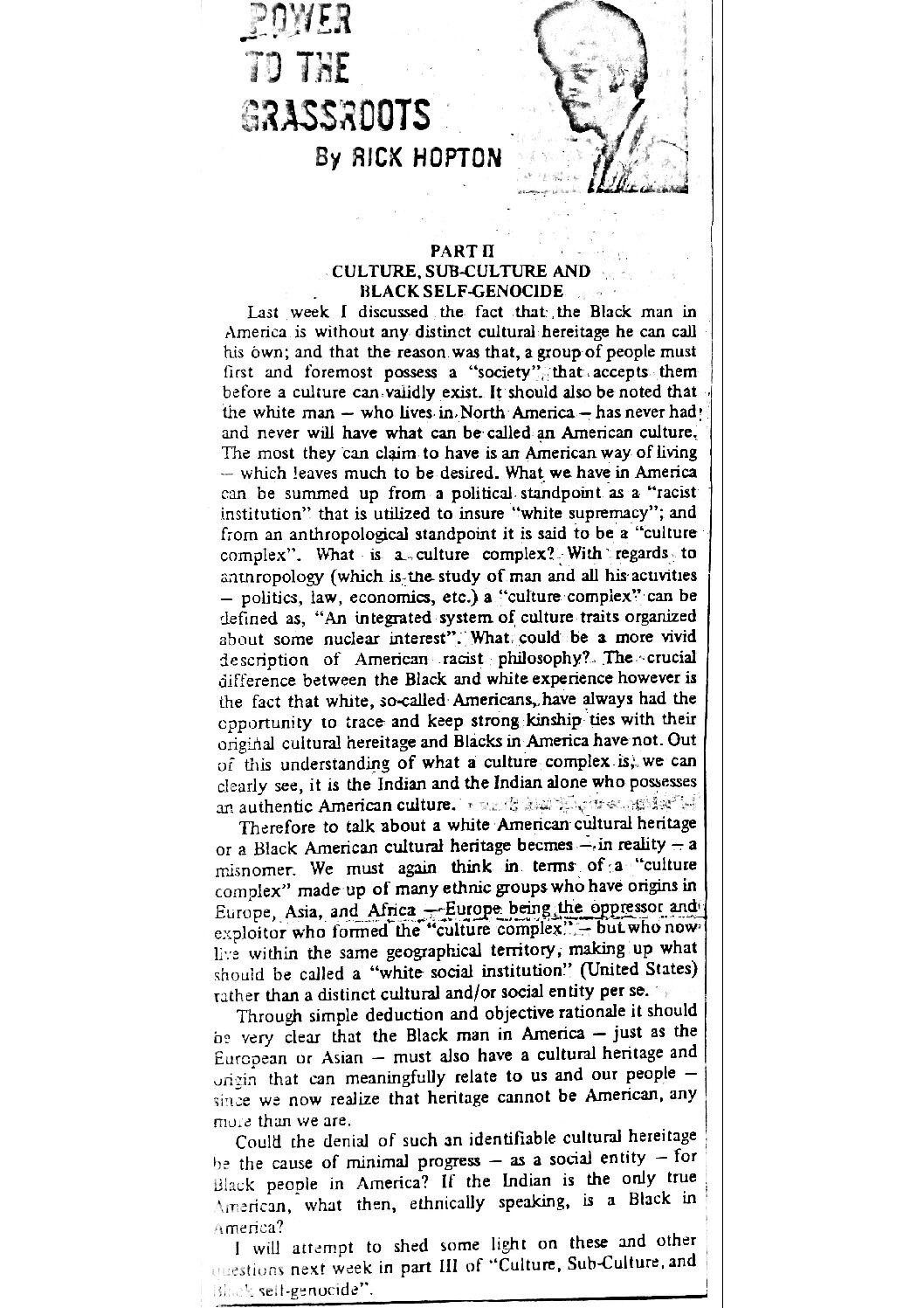
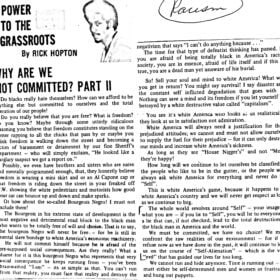
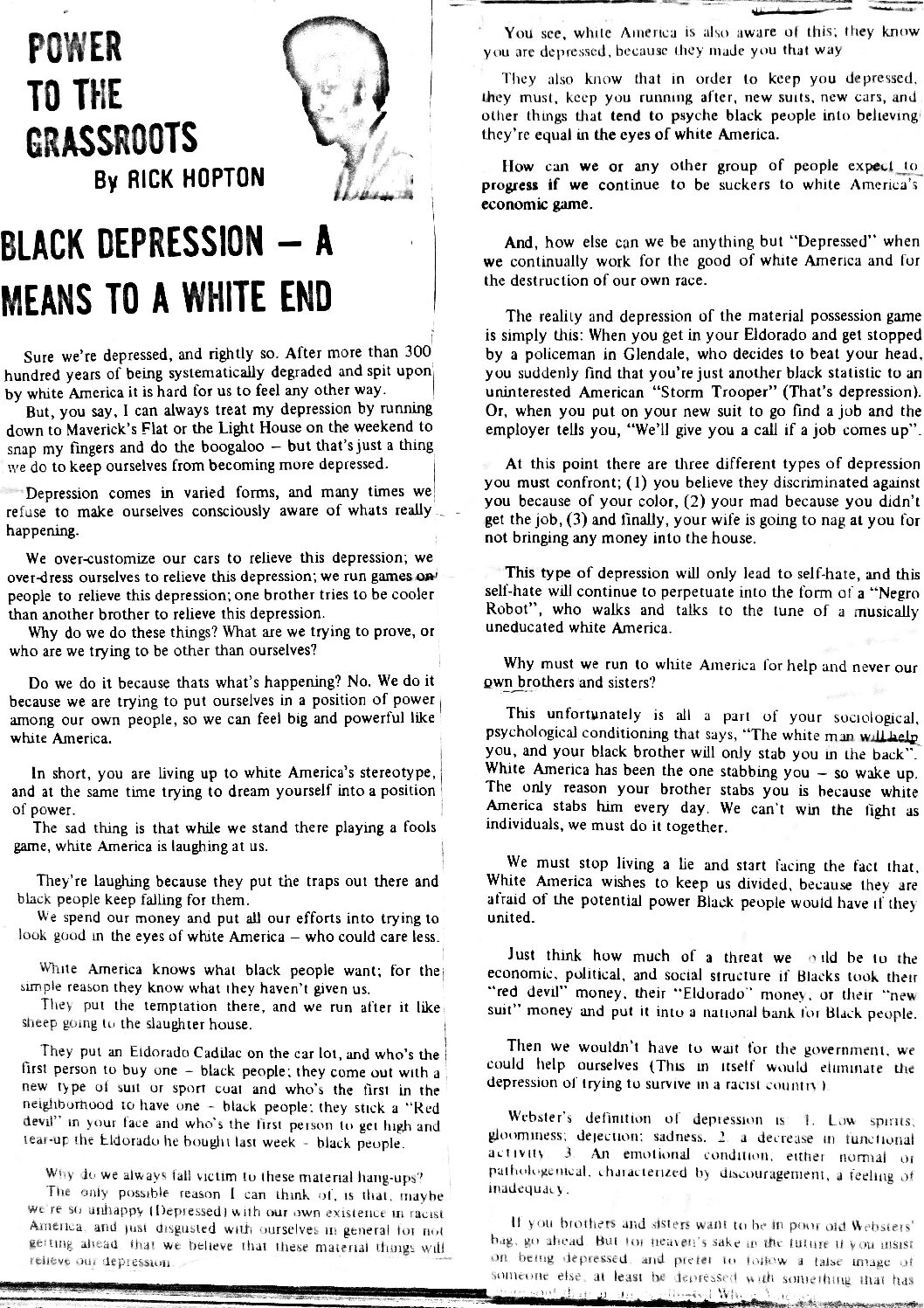

Reviews
There are no reviews yet.